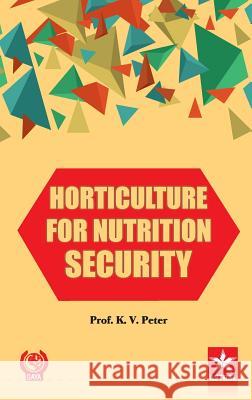Horticulture for Nutrition Security » książka
Horticulture for Nutrition Security
ISBN-13: 9789351306771 / Angielski / Twarda / 2015 / 544 str.
Malnutrition-under nutrition and imbalanced nutrition-is a major health problem in developing and developed countries. The recent National Health Survey-2005-06 says "India loses 2-3 per cent of its GDP every year due to undernutrition among children in the age group of up to two years". According to the report "Nutrition in India" even among wealthy only about 7 percent children between 6 and 24 months receive adequate feeding, health care and environmental health. The FAO of the UN declared 2014 as year of family farming with the intention of making each family a farming unit to meet the nutritional requirement. The Indian National Science Academy focused on micronutrient security as priority for research and action. The National Academy of Agricultural Sciences, New Delhi released two policy papers related to organic farming and related approaches to make homesteads self sustainable. Being a sub-continent enjoying temperate, sub-tropical and tropical climate along with arid climate and a longer coastal eco-system India has the strength of biodiversity, traditional wisdom and adequate natural resources-soil, water and energy. "There is a horticultural remedy for every nutritional malady" says Prof. M.S. Swaminathan. Fruits, vegetables, spices and aromatic plants are the reservoirs of much needed fibre, vitamins, minerals, anti-oxidants, lipids, flavourants, odourants and essential phyto-chemicals. Horticulture for Nutrition Security carries 21 chapters authored by 43 well known scientists. Four preambles are added to get the most authoritative information on Nutrition Security. The book has a FOREWORD by Prof. V.L. Chopra, Former Member, Planning Commission (Science) GOI and Former Director General ICAR New Delhi. The book is devoted to Prof. M.S. Swaminathan, the Father of Green Revolution for his commitment to make India hunger free by 2030.











